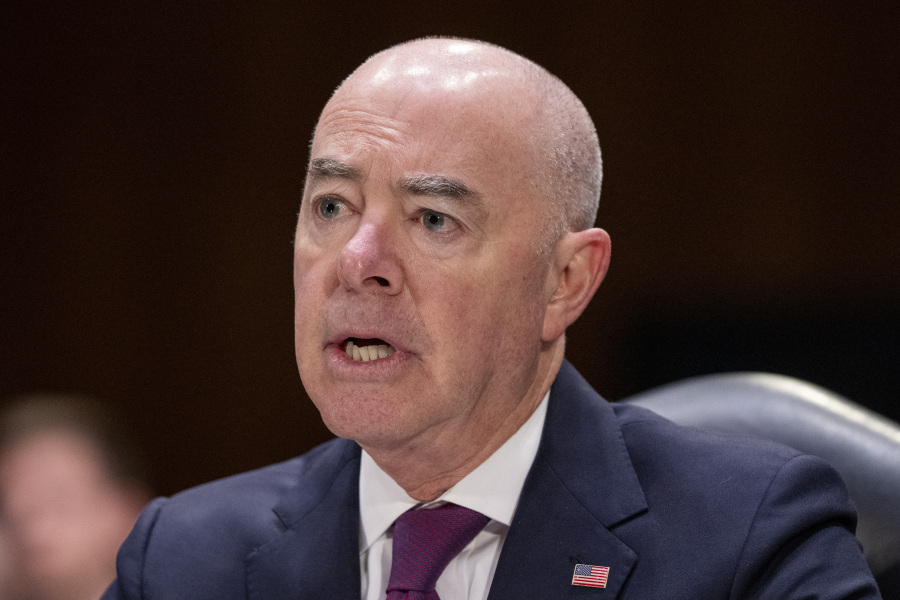WASHINGTON — The U.S. government is at risk of losing key tools for preventing terrorists from using drones, chemicals or weapons of mass destruction if Congress doesn’t take action soon, Homeland Security Secretary Alejandro Mayorkas warned Wednesday.
Congress could temporarily extend the measures dealing with drones and WMD as part of a bill the House approved Tuesday to avert a government shutdown.
But a bill regulating chemicals stalled in the Senate after a Republican senator raised concerns that it could make the U.S. chemical industry less competitive, and those powers expired in July. The others also expire this year unless Congress takes action to extend them.
“Congress must not allow these DHS authorities to lapse,” Mayorkas said, arguing that they are vital for protecting the country. “This is not a moment to let our guard down.”
He spoke during a congressional hearing focused on threats to the homeland alongside FBI Director Christopher Wray and the director of the National Counterterrorism Center, Christine Abizaid.
The Chemical Facility Anti-Terrorism Standards program requires any facility that has a certain quantity of any of a long list of “chemicals of interest” to report the information to Homeland Security. Then Homeland Security determines whether the facility is considered high risk and must develop a security plan. The agency assesses the plans and does inspections.
There are about 3,200 high-risk facilities across the country, according to agency data.
The program also allows facilities to vet prospective employees through Homeland Security for links to extremist groups, but this has stopped since it expired.
This summer, the House overwhelmingly voted to reauthorize it. But it stalled in the Senate after Sen. Rand Paul, a Kentucky Republican, raised objections. He said in a July 26 congressional speech that such regulations favor big businesses because they create a barrier to new companies coming into the market and even without these regulations, companies would keep security measures in place out of self-interest.
The authority that created the Countering Weapons of Mass Destruction Office expires Dec. 21. It might be getting a slight reprieve. A bill passed by the House to temporarily fund the government into the new year would reauthorize the office until February. The Senate still has to approve it.
The office, with about 240 federal employees and over 400 contract staff, and a budget last fiscal year of roughly $450 million, works with other parts of Homeland Security as well as states, municipalities, tribes and territories to make sure they have the right technology, training and intelligence to protect the country from mass attacks like from a nuclear weapon.
Local law enforcement agencies can request equipment and staff for events. Equipment can range from backpack units that can detect radiation while the wearer is walking through a crowd to a full trailer loaded with various types of equipment and staffed by Homeland Security experts. Over the last fiscal year, that Mobile Detection Deployment Program deployed over 180 times to 42 states, two territories and one tribal area, according to DHS data.
Those events included the Portland Rose Festival in Oregon; the NFL Draft in Kansas City, Mo.; the Boston Marathon; and the Albuquerque International Balloon Fiesta in New Mexico.




